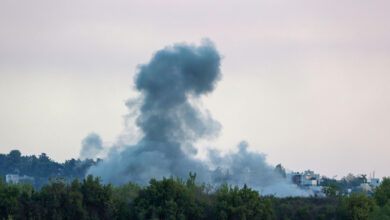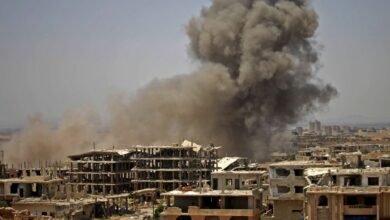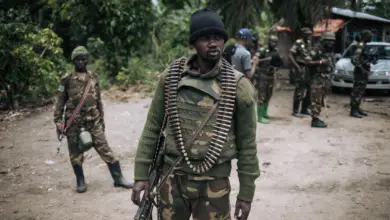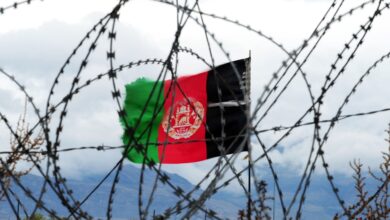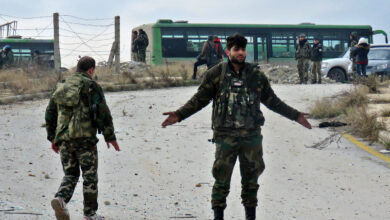Northeast Syria administration plans trials for ISIS suspects this spring
Abdulkarim Omar said the Kurdish-led administration has asked foreign countries for legal and logistical help setting up a special court in Syria
The autonomous administration in northeast Syria that is holding thousands of alleged foreign Islamic State suspects will begin putting suspects on trial in the spring, a foreign affairs official said Thursday.
Abdulkarim Omar said the trials of foreign ISIS suspects will start in the area governed by the predominately Kurdish administration in March, even if the home countries of ISIS suspects do not participate.
Omar, co-chair of the Department of Foreign relations for the Autonomous Administration of North and East Syria, said a delegation had recently informed the government of Finland about the trials during a visit to Helsinki last month.
The SDF has previously called for an international tribunal based in northeast Syria to put ISIS suspects on trial.
The administration has not made an official statement, but Omar’s comments were carried by North Press Agency which is close to the AANES-affiliated Syrian Democratic Forces, as well as on the minister’s Facebook page.
He said the delegation had requested Finland’s assistance and wanted logistical and legal help from ISIS suspects’ home countries.
Finland’s Ministry for Foreign Affairs did not immediately respond to a request for comment.
The Rojava Information Center, which operates from northeast Syria, said the move was in response to “international inaction” over the fate of the fighters, women, and children.
“The administration here fought this war, it defeated ISIS alongside the Coalition, it took all these prisoners and has since been searching for a solution. They put one proposal to the world that the various states should take back their own ISIS fighters and take responsibility for them. This was ignored, so they went away and came back with another proposal … this was also ignored, so they’ve now turned to this third-place proposal,” said RIC researcher Thomas McClure, who translated Omar’s comments.
“These people have the right to a trial. It’s their human rights to be tried. The region is under a lot of pressure – economic pressure, military pressure, attacks, the risk of breakouts, the risk of further radicalization and so it’s important to act,” McClure said.
“A lot of the foreign governments are hoping is that this little problem is going to go away, that they can just leave these suspected terrorists here and they can just rot in Syria. This is not responsible, it’s very short-sighted and it’s going to lead to further problems down the line.”
The SDF is detaining thousands of suspected ISIS fighters from more than 54 countries. The Kurdish administration has repeatedly said the situation is not sustainable and called on foreign countries to take back their citizens.
The precarious situation has been exacerbated by the incursion of Turkey-backed forces into northeast Syria in October and the unfolding humanitarian crisis in the region.
With the exception of women and children, mostly orphans, many Western nations have been reluctant to repatriate their citizens. Others have stripped ISIS suspects of their citizenship, effectively stranding them in Syria or Iraq.
“The SDF has made it a key demand that it wants the international community to assume greater responsibility for ISIS foreign fighters inside Syria. SDF leaders have been openly calling for an international tribunal to try these fighters for well over year now,” said Nicholas Heras, Middle East Portfolio Manager at the Institute for the Study of War.
“The U.S. has tried to support the SDF effort by putting public pressure on its partners and allies to repatriate their ISIS fighters,” Heras said. “This issue is one of the major challenges for the SDF, which cannot afford to keep ISIS members in camps that run as makeshift prisons indefinitely.”
In November, Turkey began deporting ISIS foreign fighters to the United States and Europe. A number of foreign fighters have also been sent from Syria to Iraq, where some have been sentenced to death. By contrast, there is no death penalty in the de facto autonomous northeast region.
They have also handed reduced sentences to local ISIS fighters who turn themselves in, while the longest sentence for ISIS fighters is a 20-year “life” sentence. It’s unclear what will happen to foreign fighters who are sentenced in any new court and where they would go after serving time.
SDF secures ‘ticking time-bomb’ ISIS prisoners in Syria against alarming odds




